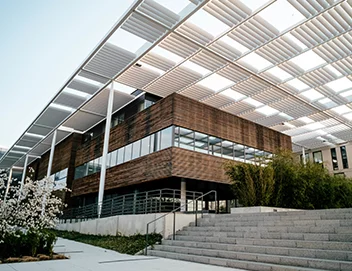- Golden Coast Transformations: Ghana’s entrepreneurial drive and breaking news today spotlight landmark policy shifts impacting investment.
- The New Investment Act and its Implications
- Infrastructure Development as a Catalyst for Growth
- The Role of Public-Private Partnerships (PPPs)
- The Rise of Digital Entrepreneurship
- Financial Sector Reforms and Stability
Golden Coast Transformations: Ghana’s entrepreneurial drive and breaking news today spotlight landmark policy shifts impacting investment.
Ghana is experiencing a period of significant economic and policy transformation, and breaking news in ghana today centers around landmark decisions poised to reshape the investment landscape. The nation’s proactive stance on attracting foreign direct investment, coupled with recent legislative changes, signals a commitment to sustainable and inclusive growth. These developments are not simply economic adjustments; they reflect a broader vision for Ghana’s future as a key player in the West African region and a hub for innovation and entrepreneurship. This evolving environment presents both opportunities and challenges, and understanding these changes is crucial for both local stakeholders and international investors.
The New Investment Act and its Implications
One of the most significant developments is the recent passage of the new Investment Act. This legislation aims to streamline the process for establishing businesses in Ghana, reduce bureaucratic hurdles and provide greater certainty for investors. It offers a range of incentives, including tax breaks and expedited regulatory approvals, particularly for investments in priority sectors such as agriculture, manufacturing, and renewable energy. The Act is expected to foster a more competitive environment and attract a broader range of investors willing to contribute to Ghana’s economic development. It also addresses concerns regarding land acquisition and dispute resolution, providing a clearer legal framework for investment projects.
| Sector | Tax Incentive | Regulatory Approval Timeframe |
|---|---|---|
| Agriculture | 5-year tax holiday | 60 days |
| Manufacturing | Reduced corporate tax rate | 90 days |
| Renewable Energy | Import duty waivers | 120 days |
Infrastructure Development as a Catalyst for Growth
Significant investment in infrastructure projects is underway across Ghana, further enhancing the country’s appeal as an investment destination. Major road, rail, and port expansion projects are improving connectivity and reducing transportation costs. Furthermore, substantial investments in energy infrastructure, including solar and hydro power plants, are addressing the long-standing issue of energy shortages. These initiatives not only support economic growth but also create numerous employment opportunities and improve the quality of life for Ghanaians. These infrastructural developments, coupled with effective policies, lay the foundation for a stronger, more resilient economy.
The Role of Public-Private Partnerships (PPPs)
The Ghanaian government is increasingly embracing Public-Private Partnerships (PPPs) to finance and implement large-scale infrastructure projects. This approach leverages the expertise and financial resources of the private sector to accelerate development and deliver essential services more efficiently. PPPs offer advantages such as risk sharing, innovation, and improved project management. Several key projects, including the construction of new highways and the rehabilitation of existing railway lines, are being undertaken through PPPs. The government is actively working to create a transparent and predictable regulatory framework to attract private sector participation in these ventures. The success heavily relies on effective governance and ensuring equitable benefit sharing between the public and private sectors.
Transparent procurement processes, clear contract terms, and robust dispute resolution mechanisms are vital to building investor confidence in PPPs. Government officials are focused on building capacity within state institutions to effectively manage and oversee these partnerships. This includes providing training programs for project appraisal, contract negotiation, and monitoring of project performance. A stable political climate and consistent policy framework are crucial for attracting long-term private sector investment in infrastructure.
PPPs are not without challenges, including concerns about transparency, corruption, and the potential for unfair contracts. Robust oversight mechanisms and independent monitoring are essential to mitigate these risks. Civil society organizations play a critical role in advocating for transparency and accountability in PPP projects, ensuring that public interests are protected.
The Rise of Digital Entrepreneurship
Ghana is witnessing a surge in digital entrepreneurship, driven by a young and tech-savvy population and increasing access to the internet and mobile technologies. Start-ups are emerging in various sectors, including fintech, e-commerce, agritech, and healthcare, addressing local challenges and creating innovative solutions. The government is actively supporting this ecosystem through initiatives such as funding programs, incubation hubs, and mentorship programs. This dynamic environment is attracting venture capital investment and fostering a culture of innovation. The emergence of a vibrant digital economy is expected to contribute significantly to job creation and economic diversification.
- Fintech: Mobile payment solutions and digital lending platforms
- E-commerce: Online marketplaces connecting buyers and sellers
- Agritech: Precision farming techniques and digital platforms for farmers
- Healthcare: Telemedicine and remote patient monitoring systems
Financial Sector Reforms and Stability
Recent reforms in Ghana’s financial sector are aimed at strengthening the banking system, enhancing financial stability, and promoting responsible lending practices. These reforms have included increased capital requirements for banks, stricter regulatory oversight, and the restructuring of non-performing loans. While these reforms have led to some consolidation in the banking sector, they are expected to create a more resilient and efficient financial system capable of supporting sustainable economic growth. The establishment of a deposit insurance scheme further protects depositors and builds confidence in the financial system. Having a robust financial sector is vital for attracting both foreign and domestic investment.
- Strengthened bank capital adequacy
- Enhanced regulatory oversight and enforcement
- Restructuring and resolution of non-performing loans
- Implementation of a deposit insurance scheme
| Financial Sector Indicator | 2022 | 2023 (Projected) |
|---|---|---|
| Capital Adequacy Ratio | 15.5% | 18.0% |
| Non-Performing Loan Ratio | 14.0% | 10.0% |
| GDP Growth Rate | 3.1% | 5.5% |
Ghana’s economic trajectory is marked by proactive policy adjustments and a clear ambition for growth. The recent policy shifts, infrastructural advancements, and fostering of a digital economy, all point toward a country actively working towards sustainable prosperity. The government’s commitment to financial sector reforms and attracting investment through PPPs demonstrate an understanding of the complex tapestry of factors vital for long-term economic stability and the opportunity to shape a future marked by progress and inclusive growth, setting it favorably on the global economic stage.





